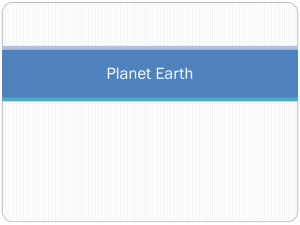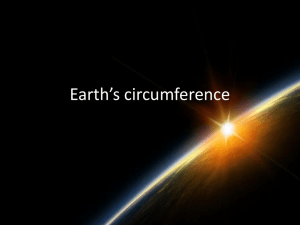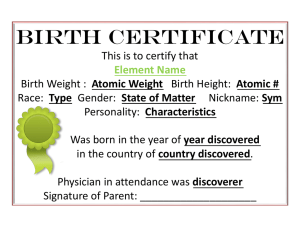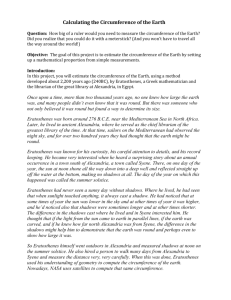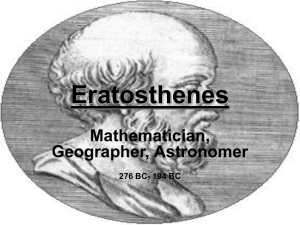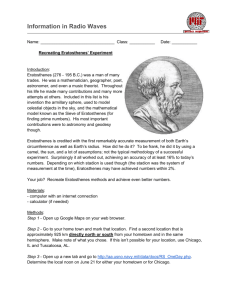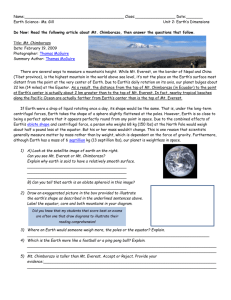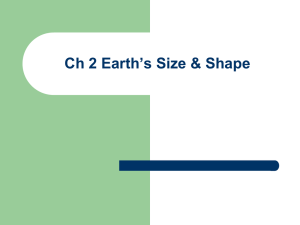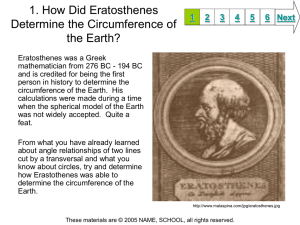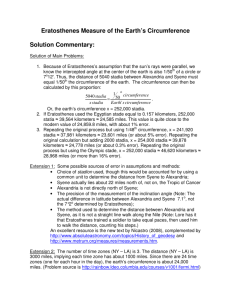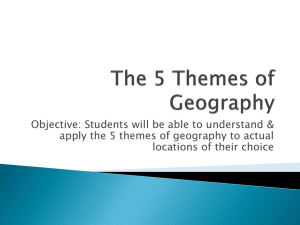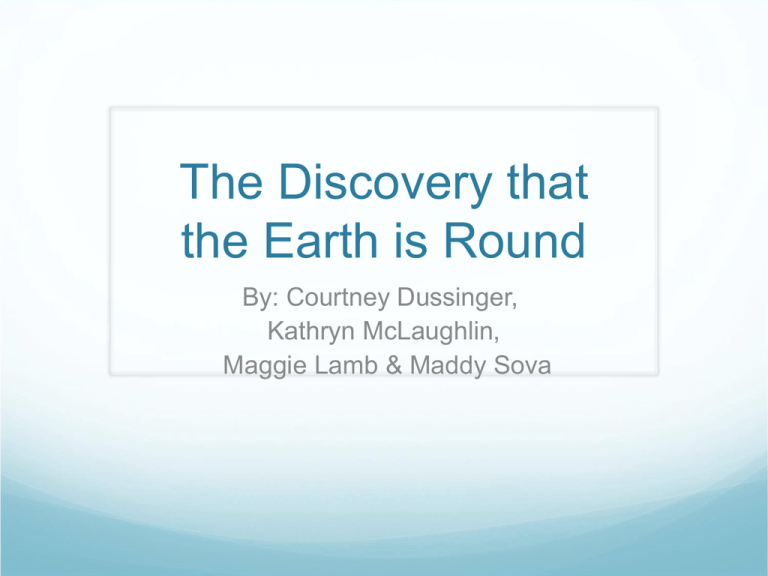
The Discovery that
the Earth is Round
By: Courtney Dussinger,
Kathryn McLaughlin,
Maggie Lamb & Maddy Sova
Thoughts before the
discovery
The most popular theory before the idea that the earth
could be round:
The Flat Earth Theory
Idea that the earth was a flat object rather than
spherical
Picture an island floating in space
This theory was commonly believed around the
world in many different cultures.
These include Ancient Egypt, Babylonia, China,
and Greece
Reasoning behind the
Flat Earth Theory
Religious reasoning
Many people took the Bible literally:
the world is said to have “four corner”; therefore it would be a
square
Logic behind theory
Flat earth seemed to be true from what humans
could see
around them until it was questioned in 4th century B.C.
The Discovery
In 192 BC Eratosthenes claimed that the earth was
round.
He discovered this based on his observations of
shadows.
He recorded the shadows cast at cities hundreds of
miles from each other and noticed the different
angles cast by the shadows.
The Earth’s Circumference
Eratosthenes used his surroundings to come up with the the
circumference of the Earth.
He used the shadows from the obelisk in the center of town and
a well, located in the center of a city called Syene, which was to
the South.
He knew the sun shone directly over this town of Syene on the
summer solstice at 12 pm.
Then he measured and discovered that the sun's angle of
elevation was 1/50th of the earth's circumference.
He didn't use the measurement system that we use today, but
instead used stades.
One stade was equivalent to the length of a stadium.
The discovery of the circumference led to the discovery that
the earth was not flat.
Diagram of His Theory
This theory was not verified until 1700 years
later when Christopher Columbus sailed West
proved this theory true.
Eratosthenes’ measurements are within 2% to
what we believe as true today.
Impact on Society
When the Earth was discovered to be round, it had a huge impact on
society. Many people were skeptical in the beginning, but now it is a
known fact that the Earth is indeed round.
With the discovery of a round Earth, there have been many more findings
because of it:
The ability to make spherical maps has greatly increased allowing us
to plot and keep track of the multitude of places discovered and those
still left to find.
It also helped to increase trade and travel.
Once this discovery was made, it was possible to determine many
other calculations. The size of the Earth and the distance from the
Earth to the moon were able to be calculated.
These calculations had the most impact on society and science after
the breakthrough of the discovery that the Earth is round.
Bibliography
Cessna, A. (2009, December 28). Flat earth theory . Retrieved from
http://www.universetoday.com/48753/flat-earth-theory/
Hewitt Paul, G. (2009). Conceptual physics. (10 ed., pp. 3-4). San Francisco:
Pearson Addison-Wesley.
Map projection - mercator. (2003, February 11). Retrieved from
http://nationalatlas.gov/articles/mapping/a_projections.htm
Paul, W. (2011, December 10). How can one prove that the world is round?.
Retrieved from http://www.physlink.com/education/askexperts/ae535.cfm
Siegel, E. (2011, September 21). Who discovered the earth is round?. Retrieved
from http://scienceblogs.com/startswithabang/2011/09/who_discovered _the_earth_
is_ro.php
Simanek, D. E. (2006, March). The flat earth. Retrieved from
http://www.lhup.edu/~dsimanek/flat/flateart.htm

